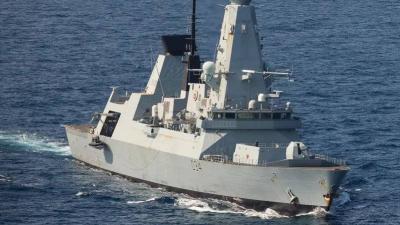Following the attack by the Houthis in Yemen on the British oil tanker Marlin Luanda, which caught fire in the Gulf of Aden, several former British security officials have criticized the Royal Navy. Former defense leaders have deemed that British warships lack sufficient firepower to target Houthi ground positions, calling the situation a disgrace. A former defense minister stated that it is shameful and a disgrace that these ships are not currently equipped with surface-to-surface missiles. He described the issue as an "embarrassing scandal," noting that "Britain now has to send its aircraft thousands of miles to carry out a mission that could be done by a surface-to-surface missile," indicating that British destroyers deployed in the Red Sea are unable to launch missiles at land targets, leaving the U.S. to carry out most strikes against the Houthis with support from British Air Force planes stationed 1,500 miles away, as The Telegraph reported.
In this context, a British defense source revealed that the destroyer HMS Diamond, stationed in the Red Sea, did not engage in striking Houthi targets because it lacks "the ability to fire at ground targets." The British Ministry of Defense previously announced that it "directly participated in destroying Houthi drones targeting ships in the Red Sea." A former admiral pointed out that Britain's inability to strike Houthi bases, backed by Iran, from naval vessels highlights the weakness of the naval forces and their inability to compete with Chinese or Russian warships, especially since the only weapons currently on the destroyers that can target other ships or land sites are the guns located at the front of each ship.
While U.S. destroyers can launch Tomahawk missiles at land targets, Britain's only options boil down to deploying aircraft or submarines, some of which won’t be available until next fall. Tobias Ellwood, the former chairman of the Defense Committee in the House of Commons, warned that the situation is untenable and urged Defense Minister Grant Shapps to conduct an urgent review. He said, "We cannot continue with a very small naval fleet that cannot shoot at land from a distance."
For years, calls have been rising in Britain to replace the Harpoon anti-ship missiles with a more effective and advanced weapon that could also be used to attack land targets. Harpoons were already withdrawn from sale from warships last year, temporarily replaced with Norwegian-made Naval Strike Missiles, which can strike land targets. However, this replacement has only been implemented on one ship so far on a trial basis and has not yet been used. However, a new cruise missile system is expected to be distributed to 11 frigates by 2028.




